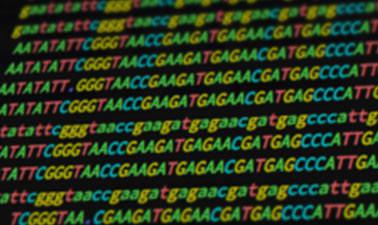- Level Expert
- المدة 36 hours
- الطبع بواسطة Harvard University
- Total students 8,323 enrolled
-
Offered by

عن
We will explain how to perform the standard processing and normalization steps, starting with raw data, to get to the point where one can investigate relevant biological questions. Throughout the case studies, we will make use of exploratory plots to get a general overview of the shape of the data and the result of the experiment. We start with RNA-seq data analysis covering basic concepts and a first look at FASTQ files. We will also go over quality control of FASTQ files; aligning RNA-seq reads; visualizing alignments and move on to analyzing RNA-seq at the gene-level : counting reads in genes; Exploratory Data Analysis and variance stabilization for counts; count-based differential expression; normalization and batch effects. Finally, we cover RNA-seq at the transcript-level : inferring expression of transcripts (i.e. alternative isoforms); differential exon usage. We will learn the basic steps in analyzing DNA methylation data, including reading the raw data, normalization, and finding regions of differential methylation across multiple samples. The course will end with a brief description of the basic steps for analyzing ChIP-seq datasets, from read alignment, to peak calling, and assessing differential binding patterns across multiple samples.
Given the diversity in educational background of our students we have divided the series into seven parts. You can take the entire series or individual courses that interest you. If you are a statistician you should consider skipping the first two or three courses, similarly, if you are biologists you should consider skipping some of the introductory biology lectures. Note that the statistics and programming aspects of the class ramp up in difficulty relatively quickly across the first three courses. By the third course will be teaching advanced statistical concepts such as hierarchical models and by the fourth advanced software engineering skills, such as parallel computing and reproducible research concepts.
These courses make up two Professional Certificates and are self-paced:
Data Analysis for Life Sciences:
- PH525.1x: Statistics and R for the Life Sciences
- PH525.2x: Introduction to Linear Models and Matrix Algebra
- PH525.3x: Statistical Inference and Modeling for High-throughput Experiments
- PH525.4x: High-Dimensional Data Analysis
Genomics Data Analysis:
- PH525.5x: Introduction to Bioconductor
- PH525.6x: Case Studies in Functional Genomics
- PH525.7x: Advanced Bioconductor
This class was supported in part by NIH grant R25GM114818.
HarvardX requires individuals who enroll in its courses on edX to abide by the terms of the edX honor code. HarvardX will take appropriate corrective action in response to violations of the edX honor code, which may include dismissal from the HarvardX course; revocation of any certificates received for the HarvardX course; or other remedies as circumstances warrant. No refunds will be issued in the case of corrective action for such violations. Enrollees who are taking HarvardX courses as part of another program will also be governed by the academic policies of those programs.
HarvardX pursues the science of learning. By registering as an online learner in an HX course, you will also participate in research about learning. Read our research statement to learn more.
Harvard University and HarvardX are committed to maintaining a safe and healthy educational and work environment in which no member of the community is excluded from participation in, denied the benefits of, or subjected to discrimination or harassment in our program. All members of the HarvardX community are expected to abide by Harvard policies on nondiscrimination, including sexual harassment, and the edX Terms of Service. If you have any questions or concerns, please contact harvardx@harvard.edu and/or report your experience through the edX contact form.
What you will learn
- Mapping reads
- Quality assessment of Next Generation Data
- Analyzing RNA-seq data
- Analyzing DNA methylation data
- Analyzing ChIP Seq data
Skills you learn
- Life Sciences
- Matrix Algebra
- Software Engineering
- Biology
- Statistical Inference
- R (Programming Language)
- Open-Source Software
- Ribonucleic Acid Sequencing
- Exploratory Data Analysis
- Data Analysis
- DNA Methylation
- Functional Genomics
- Experimentation
- Bioconductor (Bioinformatics Software)
- Quality Control
- Data Warehousing
- Statistics
- Linear Model
Auto Summary
Embark on an in-depth exploration of the cutting-edge field of functional genomics with the "Case Studies in Functional Genomics" course, tailored for learners in IT and Computer Science. This course, part of the prestigious edX platform, is designed to equip you with the essential skills to process and normalize raw genomic data, enabling the investigation of critical biological questions. Led by Harvard experts, this comprehensive course spans various aspects of functional genomics. You'll begin with RNA-seq data analysis, learning to handle FASTQ files, perform quality control, align reads, and conduct gene-level and transcript-level analyses. The course also covers DNA methylation data analysis and ChIP-seq dataset processing, including reading raw data, normalization, peak calling, and differential binding pattern assessment. The curriculum is divided into seven parts, accommodating diverse educational backgrounds. Statisticians may bypass introductory courses, while biologists might skip initial biology lectures. The course progressively introduces advanced statistical concepts and software engineering skills, including hierarchical models, parallel computing, and reproducible research. This course is part of two Professional Certificates: 1. **Data Analysis for Life Sciences**: - Statistics and R for the Life Sciences - Introduction to Linear Models and Matrix Algebra - Statistical Inference and Modeling for High-throughput Experiments - High-Dimensional Data Analysis 2. **Genomics Data Analysis**: - Introduction to Bioconductor - Case Studies in Functional Genomics - Advanced Bioconductor Self-paced and designed for expert-level learners, the course spans 36 weeks. Subscribing to the Professional track offers a structured pathway to mastering the domain. This course is ideal for IT and Computer Science professionals keen to delve into genomics, statisticians seeking to apply their skills to biological data, and biologists eager to enhance their computational proficiency. Join us and become adept at unraveling the complexities of functional genomics.

Rafael Irizarry

Michael Love

Vincent Carey


